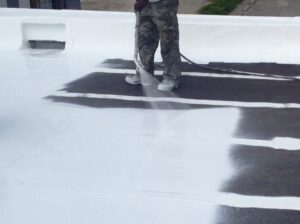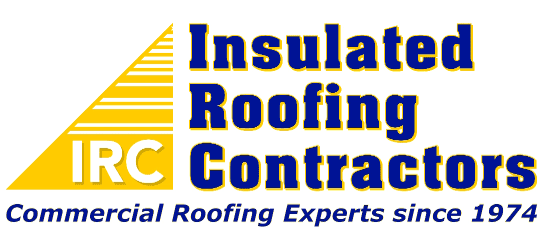WHICH IS THE BEST ROOF REPLACEMENT MATERIAL FOR YOUR BUILDING?
Options are great; we love to have options. The ability to choose from a variety of alternatives typically leads to you getting a better product, better service, and a better experience. However, sometimes, having too many choices can be a problem. Too many options can make it hard to properly evaluate the situation, and lead you to delaying your decision. That is the case with many roofing decisions these days, because so many different roofing systems are available. The wide array of options can make it extremely difficult to choose the best roof replacement material for your building. Let’s look at some tips to help you choose the best roof replacement material, regardless of your situation.

Best Roof Replacement Material: Installation
One of the first aspects of your roof replacement decision should be the installation process. You have to evaluate what you want out of your installation: Speed? Low cost? Environmental friendliness? A little bit of all three? Well, the short answer is it will depend on your roof. Metal roofs can be installed fairly quickly, though you will pay a high price for the labor. A spray foam roof is quickly installed, the installation cost is low, and it is very environmentally friendly. Single-ply roofs have a fairly low installation cost, though they aren’t quite as fast as some other systems. Just make sure that as you evaluate your new roofs, you consider the installation requirements and performance.
Best Roof Replacement Material: Insulation
Another key aspect that will determine the best roof replacement material for your building is the insulation value. Will the material improve the insulation of your building, or does it allow heat to escape or cold to enter? As a general rule, roofs with seams and fasteners will not perform as well as a monolithic system such as spray foam. Seams and fasteners naturally allow heat transfer, so if you can avoid them it’s a good idea to do so.
Best Roof Replacement Material: Weather Resistance
By weather resistance, we don’t just mean a roof that doesn’t leak in the rain (although that’s included). We mean a roof that resists wind uplift, doesn’t suffer when it’s covered in snow and freezing temperatures, doesn’t leak, and can resist 100 degree days. Metal roofs are great at resisting leaks, but hot and cold temperatures cause the metal to expand and contract, which can lead to fasteners backing out and exposing holes. Single-ply roofs are better with cold temperatures, but they can suffer from wind-uplift if they are improperly installed (everything with roofing comes back to proper installation). Spray foam roofs perform well in all weather situations, which make them the best roof replacement material for your building when it comes to weather.
What Will the Contractor Recommend?
The best roof replacement material is one that your contractor is comfortable with and thinks will be the best system for your building. If a contractor is comfortable with a certain system, and that system is appropriate for your building, then that’s a good system for your building. Trust your contractor to recommend a system that is good for your roof and that they are confident to install.
Conclusion
Choosing which material you will use in your roof replacement is a difficult decision. The best roof replacement material for your building is going to vary based on your needs and wants. Some building owners can take some time during installation while others are in a rush. Some building owners need insulation from their roof while others already have a very efficient building without the additional help from the roof. Consider these factors when picking the best roof replacement material for your building and you can’t go wrong.
